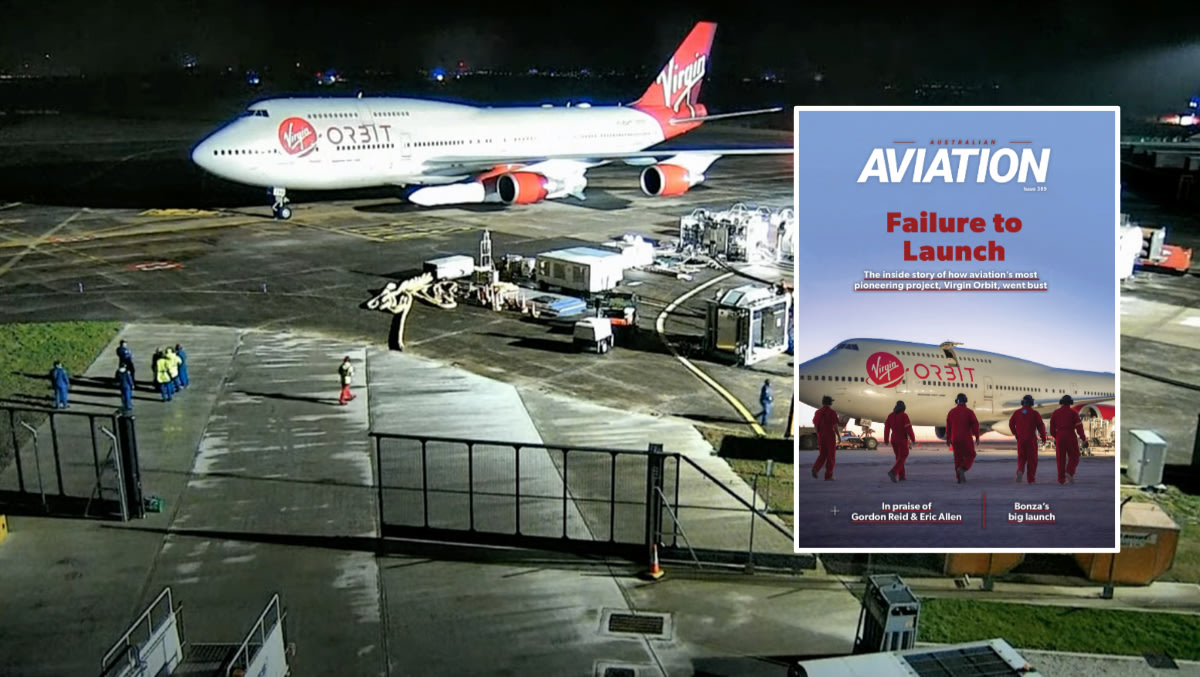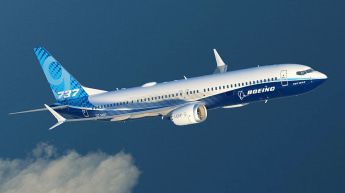The man behind three NASA launches in Australia last year has said Virgin Orbit’s system of launching rockets from 747s is not as reliable as it seems.
Michael Jones, executive chairman of ELA and founder of Rex, said there’s “a lot of complexity that doesn’t appear to be there” and hinted traditional vertical blast-offs are more successful.
It comes days after Orbit finally admitted defeat in its battle to find a rescue deal and said it would cease all operations. It had been hoping to launch from Toowoomba in Queensland next year.
Jones was speaking to Australian Aviation in our latest print magazine. To find out more and subscribe, click here.
Jones has a unique insight into the blurring worlds of aviation as the founder of Rex, a former senior executive at Virgin Australia and now chief of a spaceport business in the Northern Territory.
Speaking about the company’s demise, Jones said that if you launch rockets vertically and they don’t ignite, the projectile sits on the launchpad. But, if you drop it horizontally from an aircraft, “you’ve dropped a bomb”.
“There is a lot of complexity that doesn’t appear to be there. It sounds great, but it’s a challenging thing they’re doing.
“We track about 76 rocket companies globally. That’s a mixture of vertical, which is about 90 per cent of the market, and horizontal, which is a further 7 per cent. I think about 25 of those are ‘real’.
“And by that, I mean real in their financial capacity, technology and having a business plan for a successful solution.” Of the 25 remaining in his system, he predicts only 11 will survive.
“Space is hard, and that’s a very high attrition rate. It’s not necessarily because people don’t have the right idea, but that there are significant challenges.”
Earlier this week, Virgin Orbit agreed to sell all of its assets, including its rocket-launching 747, to four winning bidders for just $36 million – barely 1 per cent of the company’s valuation in 2021.
Its demise followed the failure of its landmark launch in Cornwall, south-west England, failing in January. It had been targeting future launches in multiple countries, including Australia.
Virgin Orbit’s plan worked because the 747 has a little-known capacity to attach a fifth engine, enabling it to carry a rocket. After the satellites are fitted underneath the rocket’s nose, or fairing, the projectile is attached underneath the left wing of the Jumbo Jet. The aircraft takes off and cruises upwards to its launch position at around 35,000 feet.
“The pilot then pulls up on the 747 to a 30-degree angle because we want the rocket facing the right direction, and we want a bit of upward pitch,” Hart told Australian Aviation.
“The other pilot, at the right moment, pushes a button on the panel of the cockpit to release the rocket, which drops — or glides — for about four or five seconds until it’s safely able to start its engines.”
Seconds afterwards, the 747 banks right to stay clear of the rocket’s path.
‘Cosmic Girl’, now N744VG, enjoyed a 14-year career with Virgin Atlantic as G-VWOW carrying more than two million passengers mainly from London to New York.
To find out more and subscribe to Australian Aviation’s print edition, which you can also read online, click here.
















